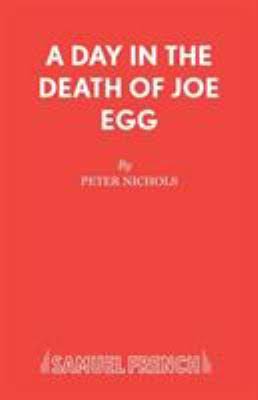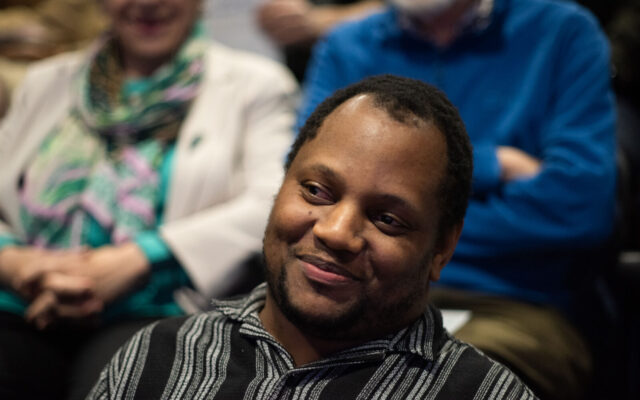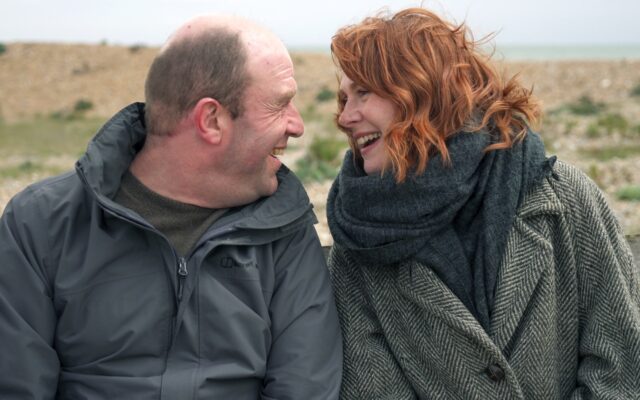 Simon Jarrett discusses a hit play from the 1960s that broke new ground by featuring a character with profound learning disabilities.
Simon Jarrett discusses a hit play from the 1960s that broke new ground by featuring a character with profound learning disabilities.
A day in the death of Joe Egg (1967) Peter Nicholls
Peter Nicholls’s play tells the story of Bri, a teacher, Sheila, his wife, and their profoundly disabled ten-year-old daughter Joe. It opened in Glasgow in 1967, quickly transferring to London’s West End and then to New York’s Broadway, where it was an award-winning hit. It has since been revived several times both on stage and television.
Joe was born with cerebral palsy and severe brain damage after a five-day labour. Despite the cause of her disability being quite evidently medical error by doctors, Sheila and Bri still wrestle with whether they were in some way responsible. Sheila in particular wonders if her sexually promiscuous past has somehow caused it, a punishment either from God or some vague moral retribution system in the ether.
She is unknowingly reflecting centuries-old theories about maternal culpability and responsibility for disability, brought about by their behaviours or experiences during pregnancy.
A dreadful 1960s trendy vicar, (who can’t help saying ‘fabulous! crazy!’), casually reminds Sheila of an even older explanation for defect: ‘My dear, the devil is busy day and night… now and then some innocent bystander blunders into the crossfire between good and evil.’
Bitter humour
Bri and Sheila try to cope with the world of epilepsy medication, incontinence, fits, heavy lifting, love and shame that the birth of Joe has catapulted them into. Bri, a cynical teacher cracking quick-fire sarcastic observations on all he sees before him, copes through bitter humour.
Sheila goes to amateur dramatics, to try to spend at least some time in another, less punishing world. Together, they re-enact the scenes they have lived through, in caustically funny interactions. Bri impersonates the heavily accented German paediatrician who tried to explain to them what had happened:
“Mattam, let me try and tell you vot your daughter iss like. Do you know vot I mean ven I say your daughter iss a wegetable?”
As they cope as best they can, their marriage crumbles around them.
Stunning
Meanwhile, on stage, Joe sits slumped in a wheelchair with a tray in front of her. Her only word is ‘Aaaah’ and she has constant fits. Bri and Sheila give her imaginary words and create different characters for her, as they fantasise about what, or who, she might have been. Then, at the end of the first act, something extraordinary happens.
Many people who have ever known a person with profound learning disabilities will have at some point imagined, or dreamed, that the person has started to walk and talk, become able to express themselves, somehow escaped from their disability.
At the end of act one, that dream becomes a reality. Joe bounds onto the empty stage with a skipping rope, singing a skipping song. She addresses the audience, in a clear voice, announcing that there will be an interval. She tells them what will happen in the second act, thanks them, and resumes skipping. It is a stunning theatrical moment.
In the second act Joe reappears, silent and slumped in her wheelchair. Things begin to fall apart. Friends, and Bri’s mother, visit. Bri exhibits increasingly disturbing fantasies (or are they only fantasies?) about ending Joe’s life. Anger, grief and frustration bubble to the surface. The phrase ‘sitting around like Joe Egg’ comes from Bri’s grandmother, who used it to describe times when she had nothing to do. As Joe sits mostly immobile, occasionally fitting, apparently doing nothing like Joe Egg, the world around her starts to collapse, riven with passions and uncontrolled emotions unleashed by her presence. She changes her world, even though all she says is ‘Aaaah.’





